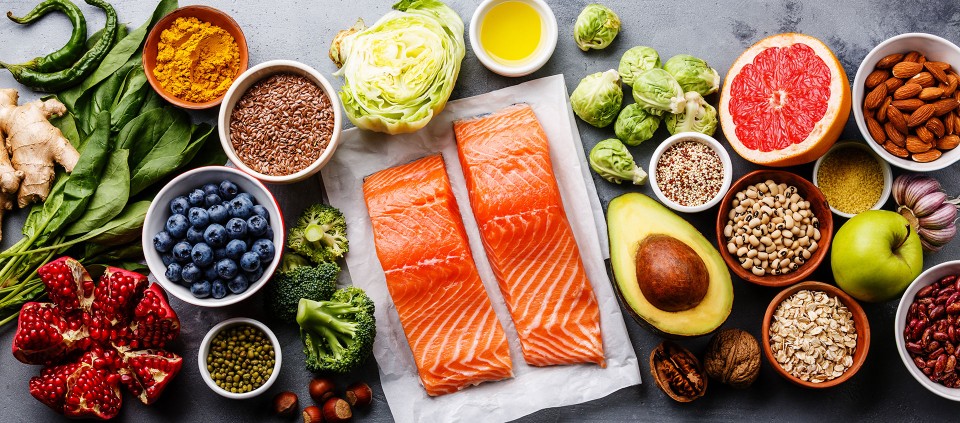Foods Fighting Forgetfulness

Can an apple a day keep Alzheimer’s away? Maybe not exactly … but it can’t hurt.
As cases of Alzheimer’s rise and the level of care increases, more and more attention is turning to this disease. Scientists are becoming more knowledgeable about its causes and how we might prevent it.
According to research, a brain-healthy diet is just one way to reduce the risk of getting Alzheimer’s. Physical activity, too, plays a key role in the health of your brain. “But I’m not doing push-ups with my brain,” you might say. But you’d be surprised how much your mind benefits from a healthy body.
Let’s explore how eating right and getting off the sofa might help you prevent or at least hold off onset of Alzheimer’s disease.
According to the Alzheimer Research & Prevention Foundation, diet is the first of that organization’s “4 Pillars of Prevention.” Things like lean protein, good fats (such as avocados and flaxseed oil) and foods proven to improve brain function make up an ideal diet for those looking to prevent Alzheimer’s.
These so-called superfoods include blueberries, spinach, walnuts and kelp, which are among the foods rich in antioxidants that fight damaging free radicals.
What’s else? Fish, fish and fish. The University of Maryland Medical Center suggests eating fish rich with omega-3 fatty acids, such as salmon, up to three times per week for maximum health benefits.
The Center also suggests six to eight glasses of water, preferably filtered, each day. Increasing your water intake can help to flush out toxins in the body. Research led by Keele University in the United Kingdom in 2012 showed that a liter of mineral water per day showed the potential to prevent the mental decline linked to Alzheimer’s.
Dietary supplements that are thought to help prevent memory loss and improve brain function include zinc, vitamin B12 and folic acid. Omega-3 fatty acids can also be taken as supplements.
It’s easier than you might realize to incorporate these foods into your diet. Toss a handful of blueberries into your morning cereal or switch from white bread to whole-grain bread for your sandwich. As for water, drink bottled water and collect the caps to keep track of how much you’re consuming.
Going with the (Blood) Flow
While important, sitting around eating the right foods is only part of the Alzheimer’s prevention puzzle. Just as important is exercise.
Physical activity, which doesn’t have to include time spent in the gym but can be something as simple as walking or gardening, increases your blood flow. This would naturally result in improved blood flow to the brain.
As reported by the Alzheimer Association, aerobic exercise is best because it increases oxygen intake. Increased oxygen to the brain is vital for brain health! The Association goes on to say that aerobic exercise, such as walking or bicycling, has shown to decrease the loss of brain cells in seniors.
And not just physical activity but brain activity is important as well. Keeping your mind engaged and stimulated can help prevent the disease from starting in the first place. Various studies, including one conducted by the Helen Willis Neuroscience Institute at the University of California, Berkeley, in 2012, have shown that higher mental activity leads to a decrease in protein buildup in the brain. This buildup is evident in Alzheimer’s patients.
Again, it won’t take a complete lifestyle change to work more physical activity into your day. Taking the stairs instead of the elevator or walking instead of driving a few blocks to the store can go a long way toward becoming more active.
What’s more, this increased activity might help shed any unwanted weight, which can decrease the chances of, among other things, stroke and diabetes, both of which can be risk factors for Alzheimer’s.
None of this, of course, is a guarantee that you won’t get the disease. Genetics plays a role, as does other factors such as previous head injuries.
But there are so many health benefits to eating right and getting daily exercise that it’s something we should all be doing anyway, especially as we advance in age. And if it turns out to be the one-two punch needed to knock out Alzheimer’s, then you’ve enjoyed an added bonus!
This article was reprinted from the Alzheimer’s Research & Prevention Foundation website.